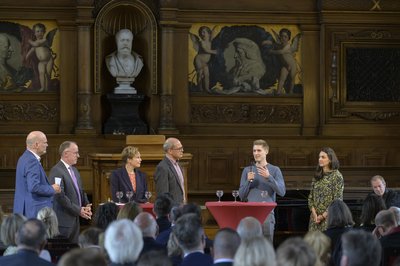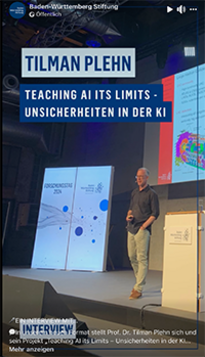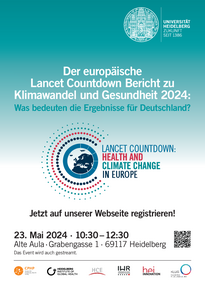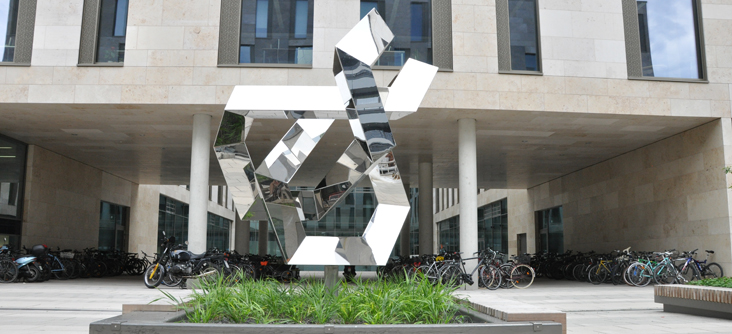
Newsroom
The IWR is an interdisciplinary research center for Scientific Computing which builds bridges across disciplines. It promotes mathematical and computational methods in science, engineering and the humanitites. Currently the IWR comprises more than 50 research teams from various faculties. Around 600 scientists work together in interdisciplinary cooperation projects. In addition to educating the next generation of excellent scientists the IWR also focuses on advacing international research networks.
2024
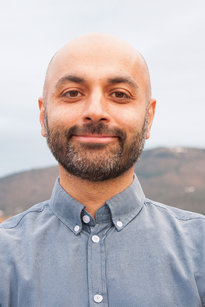
December 19, 2024
Research at Universität Heidelberg Supported by a Heisenberg Professorship
Saeed Amirjalayer admitted to the German Research Foundation funding program
Prof. Dr Saeed Amirjalayer has been appointed to the Faculty of Chemistry and Earth Sciences of Heidelberg University as a Heisenberg Professor of the German Research Foundation (DFG). He has distinguished himself through his research on the development and application of computational methods to investigate molecular-based functional materials. His group combines theoretical chemistry and physics with machine learning and evolutionary algorithms to address, by performing comprehensive multiscale simulations, key questions in basic research and to develop fundamental models of technology-relevant applications. In the framework of the DFG-funded professorship for computational chemistry, Prof. Amirjalayer conducts his research at the Interdisciplinary Center for Scientific Computing.
Located at the interface of chemistry, physics and materials science, Prof. Amirjalayer’s research aims to bridge a gap in the development of materials that can fine-tune their properties at the molecular level in response to external stimuli and adapt to their environment. To do so, the scientist and his team work on novel approaches to encoding information at the atomic scale, decoding it on demand in response to external inputs and translating it into the targeted functionality. Building on that, their mission is to produce nanoscale intelligent, cell-like functional materials.
After graduating and earning his doctorate in Bochum, Saeed Amirjalayer conducted research supported by the German National Academy of Sciences Leopoldina at the University of Amsterdam (Netherlands). In 2014 he moved to the University of Münster as a group leader, completing his habilitation in chemical physics at the Center for Nanotechnology. In September 2024 he was appointed a Heisenberg Professor at Heidelberg University. Prof. Amirjalayer is one of the project leaders in the recently extended Collaborative Research Centre 1249 “N-Heteropolycycles as Functional Materials”, which explores organic and optoelectronic materials.
The Heisenberg Programme of the German Research Foundation offers various funding formats and addresses outstanding scientists who fulfil all the preconditions for appointment to a tenured professorship.
[Press Release Heidelberg University] • [DFG Heisenberg Programme] • [Website Prof. Amirjalayer]
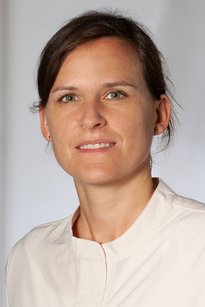
November 14, 2024
New IWR Member - Dr. Sandra Barteit
We are pleased to announce that Sandra Barteit has joined the Interdisciplinary Center for Scientific Computing (IWR) as a new member.
Dr. Sandra Barteit is the head of the research group Digital Global Health at the Heidelberg Institute of Global Health at Heidelberg University Hospital. With a broad interdisciplinary background in artificial intelligence, data science, digital education technologies, and global health, her research focuses on investigating global health challenges, particularly in vulnerable populations in Africa and Asia. Her expertise includes developing and implementing e-learning programs, applying machine learning, and integrating sensor-based technologies such as wearables, remote sensing, and weather stations to continuously measure the health impacts of climate change at an individual level, connecting measurement points, and identifying risk clusters that lead to targeted interventions.
At the center of her current work is the PULSE-AI project, which is funded by the Carl Zeiss Foundation with 1.5 million euros. This innovative research project uses graph databases and artificial intelligence to investigate the impacts of climate change on health in vulnerable populations. Wearable sensors and environmental measurement stations are used to collect real-time data and recognize patterns that indicate health risks due to heat and other climate factors. The goal is to develop scientifically grounded, scalable health interventions that can be implemented particularly in low- and middle-income countries.
In addition to her research, Sandra Barteit is also active in teaching. She leads the elective course track Global Health and teaches courses in global health and research methods. Furthermore, she supervises students in various projects dealing with health impacts of climate change. Her academic career includes a Dr.sc.hum. degree in Global Health from Heidelberg University, as well as master's degrees in Data Analytics at the Georgia Institute of Technology, a Master's degree in Innovation and Entrepreneurship at HEC Paris, and a Magister Artium in Computational Linguistics.
November 4, 2024
Industrial Cooperation with Harman International
A research cooperation between the Computer Vision and Learning (CVL) Lab and Harman International
has been set up.
The cooperation will run until the end of 2026, and focuses on the task of real-time depth estimation from a monocular camera placed inside a vehicle. Recent breakthroughs in this research field have increased the accuracy of such methods considerably, and a highly accurate, real-time algorithm is in reach.
One breakthrough has recently been published by CVL utilizing the power of generative KI.
[Website Prof. Carsten Rother / Computer Vision and Learning Lab]

October 21, 2024
IWR Members Discuss Artificial Intelligence at Heidelberg University's Annual Celebration
During the annual celebration inaugurating the 2024/2025 Academic Year at Heidelberg University, IWR members
Fred Hamprecht and Georgia Koppe participated in a conversation on the topic of artificial intelligence.
The scientific conversation following the Rector’s address was on the topic of artificial intelligence and entitled “AI – an opportunity for the university, a risk for society?” Even if there are challenges to overcome and, for example, ethical questions need to be tackled early, the panel participants agreed that optimism is called for in view of the huge spectrum for action. Participants in the scientific conversation were Prof. Dr Fred Hamprecht and Prof. Dr Georgia Koppe from the Interdisciplinary Center for Scientific Computing, Ruperto Carola’s Kanzler Jens Andreas Meinen, along with doctoral candidate Luis Walter, a student member of the university’s AI Board, and Prof. Dr Dr Eva Winkler from the Medical Faculty Heidelberg, who leads the Section for Translational Medical Ethics.
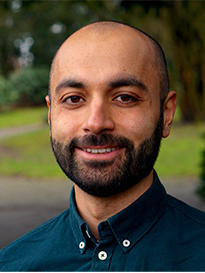
September 30, 2024
New IWR Member - Prof. Saeed Amirjalayer
We are pleased to announce that Saeed Amirjalayer has joined the Interdisciplinary Center for Scientific Computing (IWR).
Saeed Amirjalayer is a Heisenberg-Professor at the Interdisciplinary Center for Scientific Computing and the Faculty of Chemistry and Earth Sciences at Heidelberg University. As a leading scientist in the development of theoretical methods (including evolutionary algorithms and machine learning strategies) and their application to stimuli-responsive functional materials, he has earned significant international recognition. His multi-scale investigations address key questions in both fundamental and applied sciences.
Immediately after completing his Bachelor's thesis, he began his PhD thesis, funded by the Fonds der Chemischen Industrie, which he completed at the Ruhr-University Bochum in 2011. He then became a fellow of the German National Academy of Sciences Leopoldina at the University of Amsterdam, where he combined theoretical and experimental investigations of responsive molecules machines and motors. In 2014, he joined the University of Münster and the Center of Nanotechnology as a group leader, completing his habilitation in chemical physics in 2022. During this time, he led a project within the Sino-German CRC-Project (TRR-61), funded by both the DFG and NSFC. In September 2024, he was appointed Professor of Computational Chemistry at Heidelberg University supported by the Heisenberg program of the DFG.

September 27, 2024
New IWR Member - Prof. Carl Herrmann
The Interdisciplinary Center for Scientific Computing (IWR) welcomes its newest member.
Carl Herrmann is physicist and engineer by training. He studied engineering sciences and applied mathematics at the Ecole nationale des Ponts et Chaussées in Paris (1994), before graduating in theoretical physics at the Ecole normale supérieure in physics (1995). He completed his PhD at CNRS Marseille on supergravity and string theories in 1999. After several postdocs in theoretical physics (Italy and Germany), he moved to bioinformatics and became assistant-professor in Bioinformatics at Aix-Marseille University in France. In 2012, he was a visiting scientist at EMBL in Heidelberg, before joining Heidelberg University in 2013 as an assistant professor at the faculty of biosciences and the medical faculty.
Since 2023, he is professor for bioinformatics at IPMB and BioQuant and member of the faculty of engineering sciences. His research group works on computational methods to decipher transcriptional (de)regulation in diseases, by applying statistical and machine-learning approaches to integrate multi-omics datasets and clinical data. The field of application ranges from cancer to infectious diseases and mental disorders, through multiple collaborative projects with groups at DKFZ, CIID and ZI Mannheim.
30. Juli 2024
Teaching AI its Limits – Unsicherheiten in der KI
IWR-Mitglied Tilman Plehn wurde von der Baden-Württemberg Stiftung interviewt und stellt sich und sein Projekt „Teaching AI its Limits – Unsicherheiten in der KI“ vor.
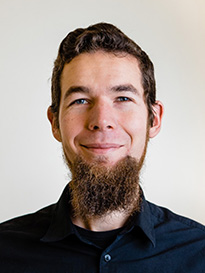
July 25, 2024
New IWR Member - Dr. Florian Nieser
IWR is delighted to announce that Florian Nieser has joined the Interdisciplinary Center for Scientific Computing (IWR).
Florian Nieser is currently the Managing Director of the Heidelberg Center for Digital Humanities (HCDH) at Heidelberg University. The center aims to establish extensive networks, design joint events, and offer support measures for innovative projects. The goal is to provide optimal support and foster independent innovation around the key topics of Digital Heritage, Digital Linguistics, and Computational Humanities, while simultaneously strengthening fundamental competencies in Digital Humanities in Heidelberg.
Prior to this, Florian Nieser held positions at the University of Tübingen and LMU Munich, where he was among other things temporarily responsible for the scientific coordination of the DFG project "AMAD - Archivum Medii Aevi Digitale". He earned his Ph.D. in German Medieval Studies at the Eberhard Karls University of Tübingen, focusing on semiotic codings of heroic figures, and during this time, he completed a certificate program in Digital Humanities. His research areas following his doctorate mainly revolve around interdisciplinary fields of transmediality, digitality, and computational humanities. In addition to his current professional role, his ongoing research project, in collaboration with an AI expert from the HSE, involves the application and fine-tuning of local LLMs for the humanities, the development of highly adaptable and resource-efficient templates with adaptive RAGs for interdisciplinary fields, and their application in the transfer sector.
May 27, 2024
Plastic Particles and Climate Change as Drivers for Antimicrobial Resistance
EU-funded research project deals with plastic pollution and the spread of antimicrobial resistance in aquatic systems
A research project based at Heidelberg University and Heidelberg University Hospital targets plastic particles and climate change as driving factors for the spread of antimicrobial resistance (AMR) in the environment. The participating researchers will investigate socio-ecological interactions within aquatic habitats affected by plastic pollution, contamination with antibiotics and climatic influences, and explore environmental and health-related impacts in the context of Planetary Health. The project is led by Prof. Dr Joacim Rocklöv, Humboldt Professor at the Interdisciplinary Center for Scientific Computing and the Heidelberg Institute of Global Health, and comprises eleven international partners, including the Research Institute for Tropical Medicine in the Philippine Department of Health. The European Union is funding the four and a half-year international collaboration project with more than six million euros.
“Scientific research is needed to show evidence on how plastic pollution in bodies of water combined with antibiotic contaminants is contributing to antimicrobial resistance spreading in the environment, threatening the health of people, animals, and ecosystems – especially in times of climate change,” explains Prof. Rocklöv, who heads the Climate-Sensitive Infectious Diseases Lab (CSIDlab). Antibiotic-resistant bacteria are known to exist in the sea, in rivers, ponds or lakes, presenting a risk of infection, in particular for people who bathe in these waters with open wounds. At the same time, water environments are increasingly polluted by micro and macro plastic particles. “Bacteria can attach to the plastic particles, grow, and form entire colonies, creating a unique micro-ecosystem termed ‘the plastisphere’. The genes that the bacteria exchange can include those responsible for antibiotic resistance,” says Dr Marina Treskova, a junior research group leader at the Interdisciplinary Center for Scientific Computing who co-directs the research along with Prof. Rocklöv. Plastic particles in turn serve as vehicles, delivering bacteria from one point to another via hydrological processes.
According to Dr Treskova, climate change can further exacerbate the spread of antimicrobial resistance in aquatic environments, for instance through heavy rainfall or lack of rain. “To halt this negative process and to protect planetary health, we have to understand these processes and their interactions to find solutions for monitoring and prevention,” says the scientist. Wastewater treatment plants present an important study site for the researchers as they collect wastewater from cities, including hospitals, and accumulate antibiotics, bacteria, and plastic waste.
A main aspect of the research carried out in the context of the “Community-based engagement and intervenTions to stem the spread of antimicrobial resistance in the aqUatic environments catalysed by cLImate change and Plastic pollution interactions” (TULIP) project are social and political factors, in order to develop holistic countermeasures – including solutions inspired by nature itself. The research approach will be tested in the Philippines and in Italy. “With TULIP, we hope to gain not only scientifically sound insights into the interrelationship between plastic pollution, AMR, and climate change but also translate them into policy recommendations, community actions and societal knowledge. We will collect data on the ground but also apply computer models to develop indicators and decision-making tools,” states Joacim Rocklöv. The epidemiologist, mathematician, and statistician is investigating climate-sensitive infectious diseases and their impact on public health under changing climatic conditions – an interdisciplinary approach of paramount importance for medicine, healthcare, climate change research, and policy consultation.
The TULIP consortium took up its work at the beginning of this year. The Heidelberg researchers cooperate with project partners in the Philippines who play a major role in implementing and coordinating the scientific work and outreach activities. Also involved are experts from universities and research institutes, non-academic partners, small and medium-sized businesses, and non-governmental organisations from Germany, Italy, the Netherlands, Sweden, Spain, and Monaco. The European Union is funding the TULIP project within the framework of Horizon Europe; it is part of the EU Planetary Health cluster.
[Press Release Heidelberg University] • [Project Website TULIP] • [Website Prof. Rocklöv] • [Website Heidelberg Institute of Global Health (HIGH)]
May 13, 2024
How Climate Change Threatens Health and What this Means for Germany
Scientists from Heidelberg University present the current Lancet Countdown report for Europe
Without more action to combat climate change there will be a surge in negative climate-related consequences for global health. And this particularly applies to Europe, where the rise in temperature is above the global average, according to the warning issued by the current Europe Report of the Lancet Countdown on Health and Climate Change, in which 69 scientists have collated the specific regional impacts with the aid of 42 indicators. Researchers from Heidelberg University are playing a major role in producing the report, under the leadership of Prof. Dr Joacim Rocklöv. Together with other representatives from the scientific community as well as experts from politics, practice and civil society, they will present its findings and the consequences for Germany during a livestreamed public event at Heidelberg University on 23 May 2024.
The Lancet Countdown, a worldwide multidisciplinary collaboration between research institutions and United Nations organisations, has since 2017 been using a wealth of indicators to analyse the connection between climate and public health, along with international political responses to climate change and its impacts. These are published annually as the “Lancet Countdown on Health and Climate Change” report in the journal “Lancet”, most recently in November last year. A separate report for Europe was introduced in 2021 in “Lancet Public Health”, with the goal of assessing the consequences of the climate crisis at the European level, reporting trends in impacts, analysing adaptation and mitigation measures, and naming fields of action in business, finance, politics and administration.
As Alexander von Humboldt Professor at Heidelberg University, the epidemiologist, mathematician and statistician Joacim Rocklöv does research in a number of large-scale projects at the university and the Heidelberg University Hospital on the impacts of climate and environmental change on public health. For that purpose, he directs the Climate-Sensitive Infectious Diseases Lab (CSIDlab), which is located at the Heidelberg Institute of Global Health and the Interdisciplinary Center for Scientific Computing. In the 2024 European Lancet Countdown report Prof. Rocklöv is responsible for the section “Climate change impacts, exposures, and vulnerabilities”, for which members of the CSIDlab team have collated and evaluated data for the indicators heat exposure, dengue fever and West Nile virus. In the section “Adaptation, planning, and resilience for health” the Heidelberg contribution discusses nature-based solutions such as forests, wetlands and urban green areas, which can serve both climate adaptation – for example in regard to protection from heat, drought and flood risks – and carbon sequestration purposes.
Prof. Rocklöv emphasises that effective action to combat climate change must guarantee not only a healthy but also a just environmental transformation, with protection and adaptation measures also reducing inequities between and within countries. This applies, he says, to all key areas impacting on health. The Heidelberg scientist: “Europe must admit to its role in creating the climate crisis and take global responsibility to support the most affected communities. This also applies to the role of Germany in actively combatting climate change and the negative effects on health linked to the rise in temperature levels.”
Launch event at Heidelberg University to present results for Germany
The event to launch the 2024 European Lancet Countdown Report on Health and Climate Change, and the results relating to Germany, will be hosted by the Heidelberg University researchers, together with the KLUG – German Alliance for Climate Change and Health and the Centre for Planetary Health Policy (CPHP).
Prof. Dr Karin Schumacher, Vice-Rector for Quality Development and Sustainability of Heidelberg University, will give the opening address. Greetings will be brought by Peter Löffler from the Directorate-General for Climate Action of the European Commission and Francesca Racioppi, director of the European Centre for Environment and Health of the World Health Organisation (WHO). Prof. Rocklöv will then explain the findings in the new report. Comments on the results will follow from Angelina Taylor of the Robert Koch Institute and Dr Petra van Rüth from the German Environment Agency. The concluding discussion will feature experts from science, politics, practice and civil society.
The event is taking place on 23 May 2024 in the Great Hall of the Old University (Heidelberg, Grabengasse 1). It starts at 10.30 a.m. Those attending in person must be seated in the Great Hall by 10.15 a.m. Attendance at the launch event – both in person and by livestream – requires registration with check-in.uni-heidelberg.de/heiinnovation/lancetcountdownreport. The streaming link will be sent to all who have registered.
[Press Release Heidelberg University] • [Website Climate-Sensitive Infectious Diseases Lab]
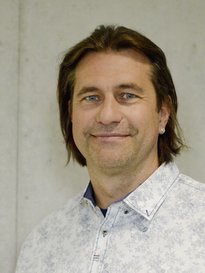
April 12, 2024
ERC Advanced Grant for Prof. Andreas Dreuw
Congratulation to IWR member Andreas Dreuw on being awarded an ERC Advanced Grant from the European Research Council (ERC). The ERC is making approx. 2.5 million euros available to Prof. Dreuw for his project “High-Performance Computational Photochemistry and Spectroscopy” (HIPERCOPS).
The ERC project “High-Performance Computational Photochemistry and Spectroscopy” (HIPERCOPS) headed by chemist Andreas Dreuw deals with calculating electronically excited states of molecular systems in order to be able to simulate photochemical processes on the computer. While computational photochemistry delivers exact results and reliable predictions for smaller molecular systems, Prof. Dreuw says there is a lack of efficient, sufficiently accurate methods to apply to larger molecular assemblies. This gap is to be closed by the HIPERCOPS research. Prof. Dreuw and his team are working on highly efficient new computational methods based on the Algebraic Diagrammatic Construction (ADC) family of methods. The scientists want to develop innovative, genuinely parallel approaches and solution strategies for ADC methods that can be used to calculate electronically excited states on modern high-performance computer architectures. This research, receiving approximately 2.5 million euros in funding, aims to create the foundations for optoelectronic devices, molecular solar thermal energy conversion or solar-driven nanomachines, in order to use solar energy efficiently. Andreas Dreuw has been Professor of Theoretical and Computational Chemistry at Heidelberg University since 2011 and heads an eponymous research group at the Interdisciplinary Center for Scientific Computing. Last year he was elected Vice-Rector for Research and Digitalisation at Ruperto Carola.
[Full Press Release Heidelberg University] • [Website Prof. Dreuw]
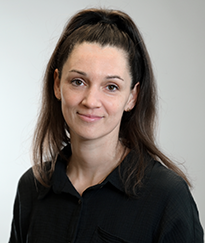
April 5, 2024
New IWR Member - Prof. Georgia Koppe
IWR is thrilled to announce that Georgia Koppe has joined the Interdisciplinary Center for Scientific Computing (IWR).
Georgia studied psychology at the Justus-Liebig-University of Gießen. She joined the Central Institute of Mental Health in Mannheim in 2011, and the Hector Institute for AI in Psychiatry in 2023 where she mainly worked on developing and applying machine learning models in the context of neuroscience and mental health. Georgia accepted a full professorship for Scientific Computing at Heidelberg University in April 2024. Her research group "Machine Learning Human Behavior" focuses on the study of human cognition and behavior.
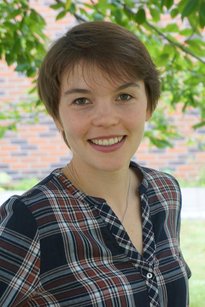
March 22, 2024
New Emmy Noether Junior Research Group for Biological Data Science
DFG allocates approx. 1.4 million euros to fund Heidelberg researcher
An Emmy Noether junior research group at Heidelberg University is investigating how to gain new insights into fundamental biological mechanisms from large-scale molecular data sets. Led by Junior Professor Dr Britta Velten, it has started work at the Centre for Organismal Studies and the Interdisciplinary Center for Scientific Computing. Prof. Velten’s research team wants to develop a procedure based on machine learning and statistical methods with which to model the impacts of genetic changes on different organisms. The German Research Foundation (DFG) is funding the six-year studies in the field of data science in biology to the tune of approximately 1.4 million euros.
When it comes to understanding the mechanisms underlying the function, development and plasticity of organisms, single-cell sequencing supplies important insights into the molecular make-up of individual cells and their interplay in complex tissues. This can be combined with targeted genetic interventions using the CRISPR technology. “To be able to reliably estimate the impacts of such interventions and compare them across biological systems, we need reliable statistical methods with which very large data sets can be analysed,” Prof. Velten explains. Developing such a method is the goal of her Emmy Noether group’s research and the project, “A statistically sound and accessible framework for causal regulatory inference from high-content CRISPR screens”. The researchers use approaches from machine learning and causal inference – a statistical method for estimating the effect of an intervention. This is to make it possible, for instance, to model all impacts of a genetic change and draw conclusions about underlying molecular mechanisms.
Britta Velten completed her bachelor’s and master’s degree in mathematics at Heidelberg University. In 2019 she earned her doctorate in the field of statistics at ETH Zurich (Switzerland) and the European Molecular Biology Laboratory in Heidelberg. Before, in May 2023, she was appointed to a tenure-track professorship for multifactorial data analysis and machine learning in the life sciences at Heidelberg University, she did postdoctoral research at the German Cancer Research Center in Heidelberg and the Wellcome Sanger Institute in Cambridge (United Kingdom).
The Emmy Noether Programme of the German Research Foundation gives exceptionally qualified young researchers the opportunity to prepare for a university professorship by leading an independent junior research group over a period of six years.
[Press Release Heidelberg University] • [Website Junior Prof. Velten]
March 11, 2024
4EU+ Joint DFH/UFA workshop on AI in Medicine: Optimised Trials with Machine Learning (Paris)
This event is jointly organised by the Sorbonne Center for artificial intelligence (SCAI) and Mannheim Institute for Intelligent Systems in Medicine (MIISM) and is financially supported by the international organisation “Franco-German University”.
The aim of the three-day workshop, held from September 11th to 13th 2024, is to bring together researchers in the field of machine learning for an information exchange in the field of Artificial Intelligence in Medicine. The topic of the first workshop is "Optimised Trials with Machine Learning". This involves the use of machine learning methods in randomised clinical studies in order to obtain better statistical information about interventions or diagnostic procedures. Recent progress in this field is presented by internationally recognized researchers from Sorbonne and Heidelberg but also from other institutions such as the 4EU+ alliance member universities.
The audience will comprise a diverse group of PhD students from the fields of medicine, biology, and computer science. The event has 40 seats available, with 10 reserved for participants from other 4EU+ alliance members and the remaining 30 allocated to students from Heidelberg University and Sorbonne University.
Please contact Angela Queisser for funding options through 4EU+ and HGS MathComp.
Deadline: April 12, 2024
For more information please visit the website of the workshop.
February 20, 2024
Fully-funded PhD Scholarships for a Research Stay in Bangalore
As part of the Hardware-aware algorithms in Scientific Computing (HAASC) project there are fully-funded PhD scholarships available for a research stay at the Computational and Data Science Institute (CDS) at the Indian Institute of Science (IISc) in Bangalore.
Deadline: March 15, 2024
For further information please visit the website of HGS MathComp.
February 8, 2024
Charles University 4EU+ Academic Mini-grants 2024
Charles University supports teams collaborating within the 4EU+ Alliance through so-called mini-grants. For the year 2024, teams comprising academics from Charles University and at least two other 4EU+ universities can apply for financial support in this seed-funding project scheme.
Deadline: February 29, 2024
For more information please visit the 4EU+ Website.
January 22, 2024
heiAIMS Summer School 2024
The Heidelberg – Cape Town Network for Applied Mathematics and Scientific Computing (heiAIMS) is organizing a Summer School on the topic of linear, integer and nonlinear optimization in March 2024. A preparatory course on the fundamentals of optimization will be held one week in advance of the school.
For further information please visit the heiAIMS website.
